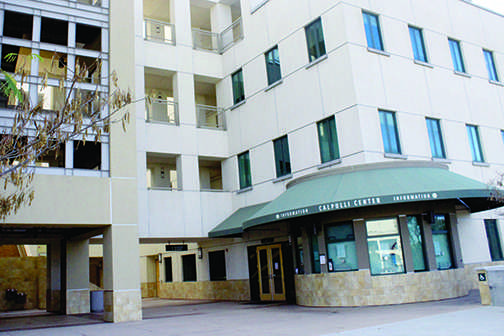The peak of the flu season is here in these cold and (possibly) rainy months of January and February, according to the Centers for Disease Control and Prevention. Flu season is always an unfortunate period filled with headaches, fevers, nausea and a chorus of coughs, and it all inconveniently comes crashing down right at the beginning of the semester. If you don’t have a naturally impervious immune system—and chances are, you don’t—you should certainly be cautious. While you’re feeling the stress of new syllabi and ridiculously high book prices, or lost in a labyrinth of handshakes and hugs, seeing old friends and meeting new ones, you might want to pause for a moment and get yourself a flu shot right to the old shoulder. In fact, it should be imperative. By not getting vaccinated, you’re not only sacrificing your chance of being flu-free, but you’re compromising the health of those around you.
If you’ve checked your email within the last few weeks, you might remember seeing an announcement sent by the San Diego State Student Health Services, with the heading, “Flu Update,” informing the student body of the looming threat that is this season’s flu virus. If you were a good student and actually read the email, then you know that we are in the grippe (did you catch that sick pun?) of a dangerous influenza strain nearly identical to the H1N1 virus (i.e. swine flu—ring a bell?) from the pandemic in 2009. This strain is particularly threatening for adults age 20 to 64, putting the majority of us right on the cusp of that margin. So bad student (and when I say ‘bad’ I’m being facetious—just start reading!), for your own good, you might want to check out more of the campus health warnings. [quote]Maybe it’s just the job of SHS to issue blanket statements, but I appreciate having an administration that cares enough to keep us safe, healthy and happy. Take it as a blessing.[/quote]
For those who happen to be skeptics and question the individual good of vaccines, perhaps afraid of the potentially anomalous side effects, or just the needles, please read on. The side effects are most often mild; it’s highly unlikely that you’ll experience anything more than a little swelling at the injection site, a light fever or some body aches, if that. The CDC estimates that severe side effects manifesting in allergic reactions or Guillain–Barré syndrome occur in a ratio of one or two to every million vaccinations. That’s hardly a statistic that should warrant your concern. However, if you suffer from aichmophobia–the technical term for fear of needles–there’s a more painless option in the form of a nasal spray available at most drug stores.
An article published by Business Insider features a series of maps highlighting various outbreaks of vaccine-preventable diseases. Though influenza wasn’t included in the highlighted list, there was a curious correlation in the outbreak of disease to those infected with and without vaccination. To illustrate, flare-ups of the measles across the U.S. in 2011 revealed that a startling 86 percent of those who contracted it were not vaccinated. Clearly, those who neglect vaccination are at high risk and need to seriously consider if their reason for neglect is valid.
After hearing the rationale of my argument, English junior Daniel Gerardi said, “I think that’s exactly right when it comes to vaccination. It’s about the community as much as the self, and when people advocate against vaccines they are aiding in the disease’s ability to spread.” Not many of you are actively “advocating” against the vaccines, but you are as Gerardi said, empowering the illness. Admittedly, I too was one of those people who was stubborn and told everyone in my family not to get vaccinated, but I’ve realized the error in my judgment.
[quote]With that said, a critical question arises: Does the individual have the right to make a self-serving decision despite its implications on the collective well-being?[/quote] Yes, individuals have that right and while it may be appropriate to exercise it in many circumstances, I think the American ideal of individual prosperity enables a sense of apathy for the whole. It’s selfish to think that as long as you are cared for, nothing else matters. I’m sure that isn’t on the forefront of your mind when you think, “I’m not going to get that flu vaccine. I don’t need it,” but it should be. Every action has a reaction, Issac Newton taught us that a long time ago. In any option to do or not do something, there are consequences in its wake, whether good or bad.
So if you are still wary, don’t do it for yourself; do it for the sake of your neighbor.







